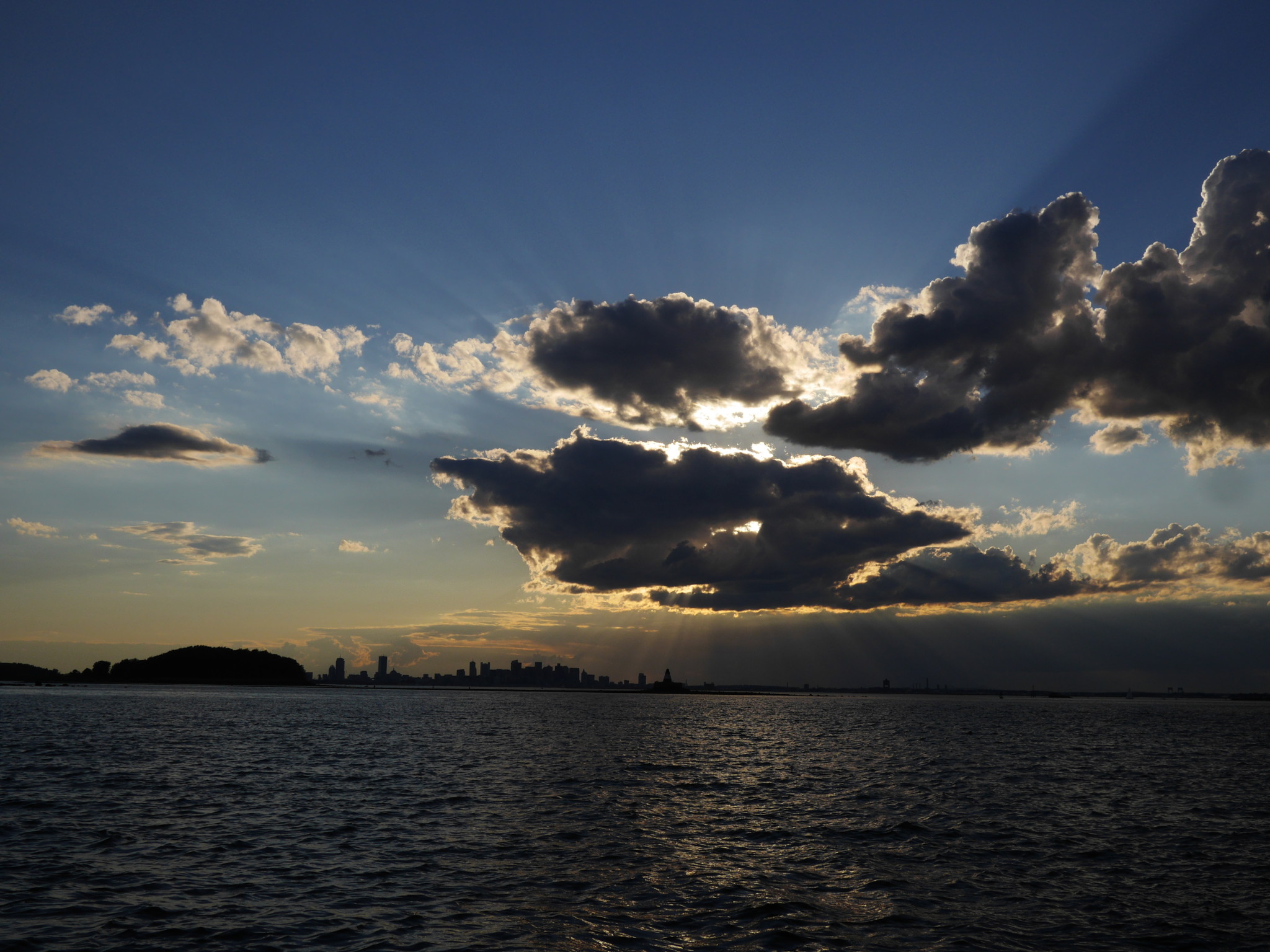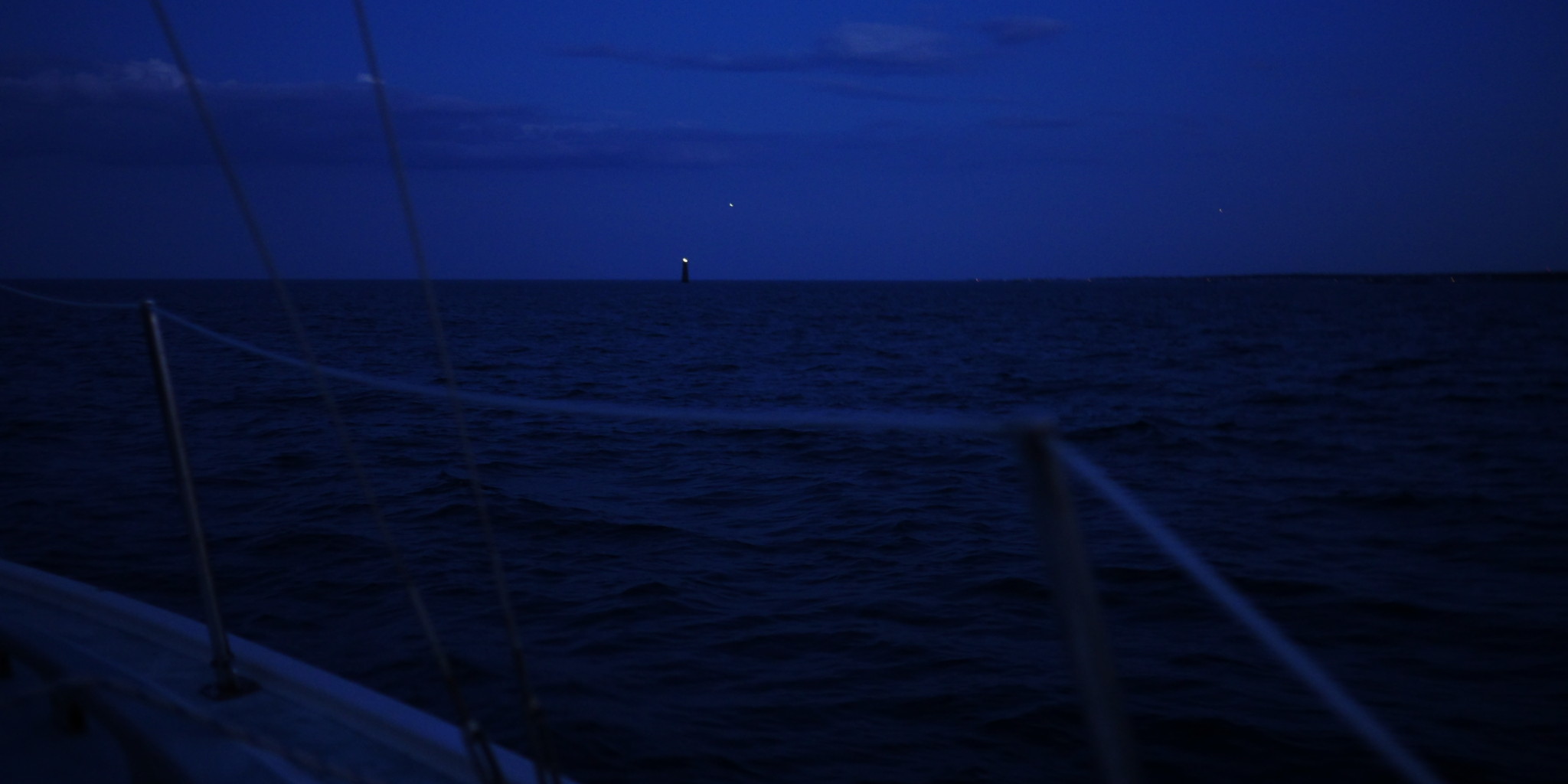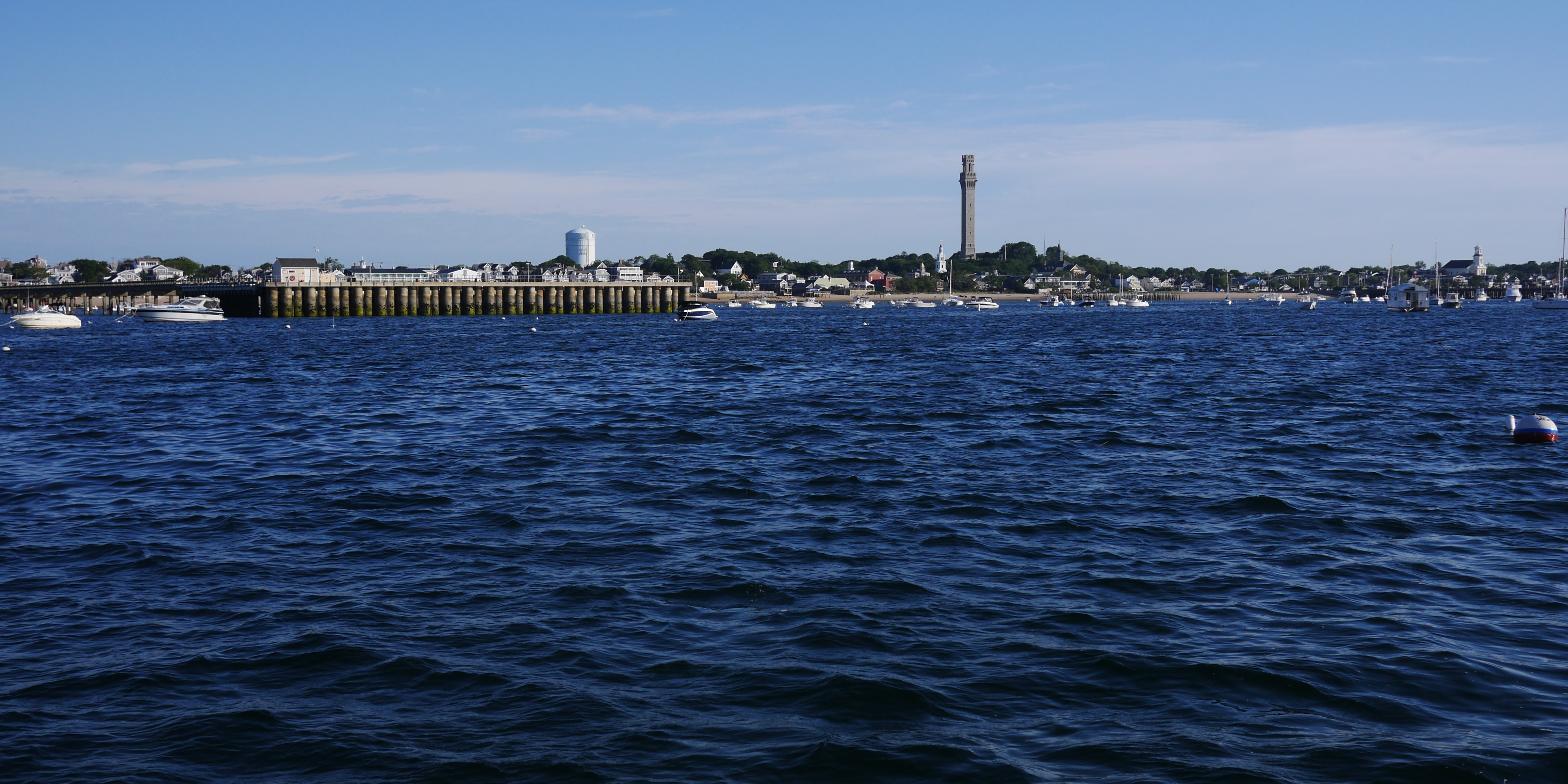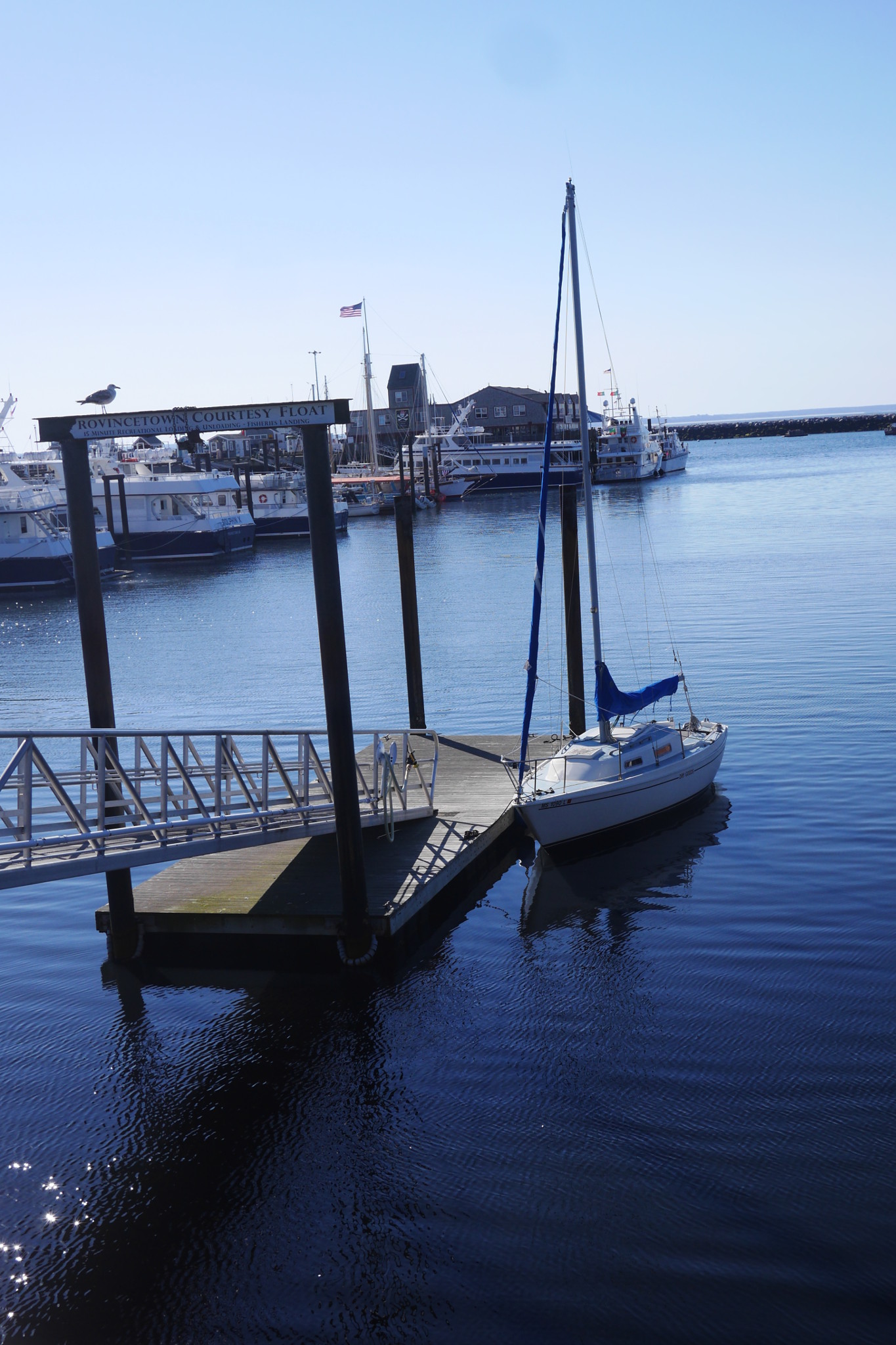The Road To Provincetown
A couple of weeks days ago I helped to deliver a boat, a relatively small Pearson 26, overnight to Provincetown, some 45 nautical miles away. We had very good south-west wind most of the way, and the boat was happily making six or even six and a half knots, which frankly feels to me over her top speed.
1.
We depart at 6:30 in the evening, and have a couple of hours till the sunset. As we are making our way through Boston Harbor towards Boston Light, the heavens have decided to treat us to their finest displays of the setting sun, and heavy clouds, and bright colorful clouds, and clouds with silver lining, and crepuscular rays, and so many wonders of the Land of Beautiful Sunsets that words cannot express. I try to pick my camera now and then, and each time have given up—fool’s errand! Miracles don’t like to be photographed. God’s creation has its own built-in copy protection.
2.
After Boston Light we turn towards Minot Ledge Light. Oh happy night navigation from lighthouse to lighthouse, just as in the days of old, when dark was dark, and light was light, and the man sailed his own precarious way between them.
The dusk is getting darker and darker, pale pink clouds to the east contrasted with heavy dark cloud silhouettes to the west, the narrow crescent of the waxing moon the only bright spot on the sky.
A fast ferry from Provincetown goes by with its lights glowing. Minot Light floats by, the shadow against the shadow, flashing its white one-four-three pattern into the dark.
From Minot Ledge we set into the direct course to Provincetown, 155 degrees magnetic heading by compass, too far yet to see Race Point Light and the well-lit Pilgrim Monument.
The moon has vanished—hidden behind the clouds, or fallen off the edge of the Earth. Brightest planets start to appear, first Jupiter, then Saturn. Then stars, more and more stars, like a photo being developed that shows more and more details as it sits in the developer bath. Here, the Milky Way makes its appearance, almost transparent at first, and then as a defining feature of the sky. The ocean and the sky blend into each other. The night has fallen.
3.
The boat is completely dark, just small blobs of light leaking inward from the navigational lights, white on the stern, red and green on the bow, and the dim glow of the compass. The murmur of the waves, the smell of the sea, the wetness and the saltiness of occasional spray on the face—all the other senses stay the same, but the sight has changed completely.
Only points of light remain in darkness. The stars and the planets. Steering by Saturn in the right shroud. Long string of land lights to our starboard, slowly but surely moving behind. Steady lights of Pilgrim Monument, and of other boats, and of planes; blinking lights of distant lighthouses.
As a spaceship flies in the emptiness of space from planet to planet, from star to star, so do we, the two astronauts, float in our craft from one light to another through the blackness of the night, aided by the light of Saturn.
Take the binoculars and lie down on a bench in cockpit looking straight up. Myriads of stars shining in the abyss of night, there is no count to them and no end.
More lights in the ocean. As the bow splits the water and the wake flows alongside, the microscopic plankton gets all excited and sparkles all around us. Go to the head (boat’s restroom), don’t turn on the cabin lights, but just pump in seawater, and the toilet bowl flashes bright sparkles.
The guiding light of Pilgrim Memorial comes and goes, turned off at precisely two o’clock to conserve electricity. We are guided by Race Point Light now, with Cape Cod Highland Light flashing brightly to starboard, the rotating beacon of the Provincetown airport to port.
4.
We reach the tip of the Cape and turn to go around it and enter Provincetown Harbor. Two more lighthouses, the flashing red of Wood End Light and the occulting green of Long Point Light, guide our way.
It is still dark, but the eastern sky starts to lighten up imperceptibly. Somebody in the heavens is turning that brightness knob very, very slowly. Venus, the Morning Star, has already risen. She is so bright that she leaves a faint trail of light on the water surface.
And with that, already in the harbor and still surrounded by darkness, we drop our sails, glide to the mooring, and tie the boat. It is four o’clock in the morning. We spend the rest of the night on the boat.
We sleep well.
5.
When we wake up, the morning is bright and clear. The night is gone as if it never were. The world around us magically appears, the water and the sky, the mooring field filled with boats, the docks, the houses and the beaches of Provincetown, dominated by Pilgrim Monument.
Arriving at one’s destination is always magical, but tenfold so on the morning after a night arrival, when the origin of the trip and the trip itself feel like just a dream. Only the destination is real, suddenly and forcefully.
But coming from the sensory deprivation of the night to the sensory overload of the day, somewhere behind the retina, the eyes still remember. Cold sparkles in the ocean. Saturn in the shrouds. Venus’ light trail on the water.
A launch takes us ashore, and then we catch a fast ferry back to Boston.
Sign me up for the return delivery.
Subscribe via RSS




